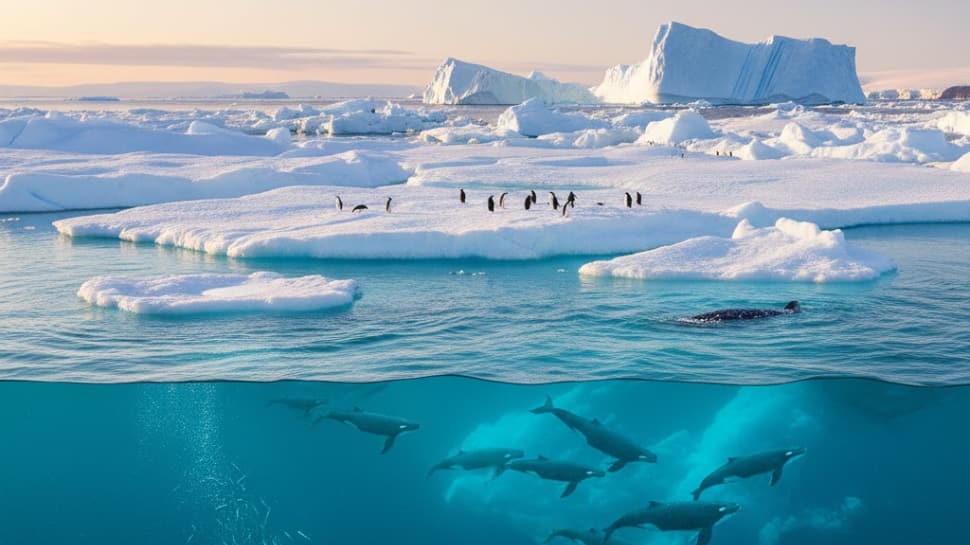Unbelievable Truth: Melting Antarctic Ice Could Trigger a Climate Crisis!










2025-10-12T05:03:57Z

The melting Antarctic ice isn’t just a warning sign—it could spell disaster for our planet! Scientists have uncovered shocking parallels between today's warming trends and events that unfolded over 17,000 years ago, when melting sea ice unleashed an avalanche of carbon dioxide into the atmosphere, leading to a dramatic increase in Earth's temperature.
The ocean acts as our planet’s massive cooling system, absorbing carbon dioxide (CO₂) and regulating climate. One of its unsung heroes is the Antarctic Bottom Water (AABW), a cold, dense current that forms as seawater freezes. When this icy water sinks, it traps CO₂ deep in the ocean for centuries, keeping our atmosphere in balance.
However, as Antarctic sea ice continues to vanish at an alarming pace, the formation of AABW is threatened. This means less carbon is being stored, and more is escaping back into the atmosphere, potentially accelerating global warming and wreaking havoc on weather systems worldwide.
In a groundbreaking study led by climate scientist Chengfei He from Northeastern University, researchers analyzed seabed sediments to understand how ocean systems reacted at the end of the Ice Age. Their findings, published in Nature Communications, upend long-held beliefs about our oceans’ behavior. Instead of a balancing act between Antarctic and North Atlantic waters, both systems weakened simultaneously, releasing massive amounts of carbon and propelling rapid global warming.
Reflecting on history, we see that around 17,000 years ago, the melting of Antarctic sea ice slowed AABW production, allowing atmospheric CO₂ levels to soar. This process unfolded remarkably quickly—just a couple of thousand years, a blink of an eye in geological terms—transforming Earth’s climate.
Today, scientists are witnessing concerning signs of a similar pattern as the Southern Ocean warms and the formation of AABW weakens once again. If trends continue, we could see vast amounts of CO₂ released from deep ocean reservoirs, igniting another global warming surge. Dr. He emphasizes the importance of understanding our climate history: “We’re seeing signals that the deep ocean carbon pump is slowing again. What happened at the end of the Ice Age could offer a glimpse of what’s to come.”
The retreat of Antarctic ice isn’t merely about rising sea levels. It’s about unlocking a buried carbon vault that has kept Earth’s temperature stable for millennia. As the ice fades away, that delicate balance may be slipping faster than humanity is ready to confront.
 George Bennett
George Bennett
Source of the news: Zee News